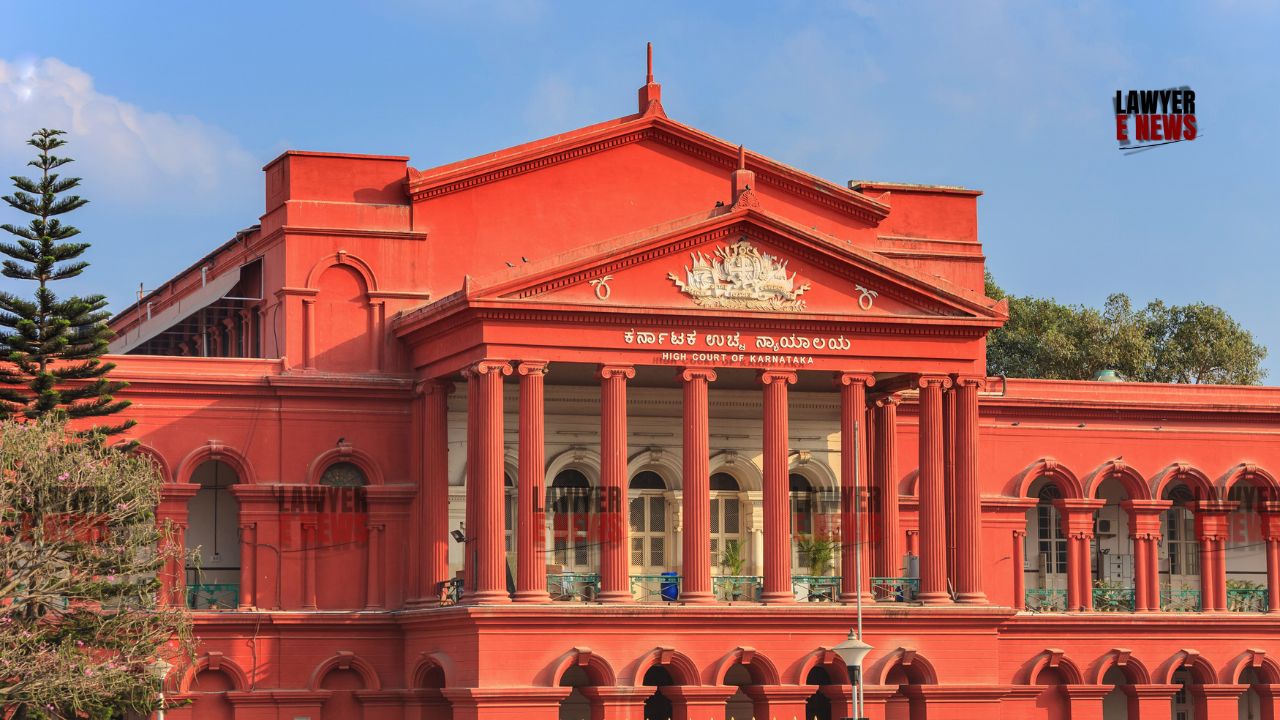-
by sayum
16 February 2026 8:46 AM



Karnataka High Court has ruled that individuals who actively participated in a crime cannot be examined as prosecution witnesses unless they have been granted pardon under Sections 306 or 307 of the Code of Criminal Procedure (CrPC). Justice M. Nagaprasanna, while pronouncing judgment on February 7, 2025, in Sri S. Muthaiah v. State by CBI, Anti-Corruption Branch, Bengaluru, set aside the trial court's order rejecting an application under Section 319 CrPC. The High Court remanded the matter, directing the trial court to reconsider summoning 23 forest officials as accused in an illegal iron ore mining case.
“Witnesses Who Confess to a Crime Cannot Escape Prosecution”: Court Orders Reconsideration of Section 319 CrPC Application
The case arose from a petition filed under Section 482 CrPC challenging an order dated January 6, 2025, passed by the LXXXI Additional City Civil and Sessions Judge and Special Judge for Elected Representatives, Bangalore City. The petitioner, an accused in a CBI case concerning illegal transportation of iron ore, sought to summon 23 forest officials as additional accused under Section 319 CrPC, alleging that they had signed blank permits that were later misused for illegal mining.
Rejecting the trial court’s reasoning that the witnesses were not hostile and could not be treated as accused, the High Court observed: “It is rudimentary that an accused cannot be a witness on behalf of the prosecution, and a person who is admittedly guilty cannot run away from punishment merely because he has been arrayed as a witness.”
The court emphasized that these officials, in their statements under Sections 161 and 164 CrPC, had admitted to signing blank permits used for the illegal transport of iron ore. The petitioner contended that such officials were particeps criminis (participants in the crime) and could not be examined as witnesses against other accused unless they were legally granted pardon.
High Court Censures Trial Court for Ignoring Principles of Section 319 CrPC
Justice Nagaprasanna criticized the trial court for failing to apply the correct legal principles under Section 319 CrPC, which allows summoning of additional accused during trial. The High Court cited the Supreme Court’s rulings in Hardeep Singh v. State of Punjab (2014) and Sukhpal Singh Khaira v. State of Punjab (2022), reiterating that: “Persons who have actively participated in an offence cannot be witnesses against co-accused unless they have been legally pardoned.”
The court also referred to Raghuveer Sharan v. District Sahakari Krishi Gramin Vikas Bank (2023), wherein the Supreme Court clarified that a witness cannot escape prosecution merely by giving testimony. The High Court held that the trial court misdirected itself by rejecting the Section 319 application without examining whether the witnesses had indeed committed the offences they were testifying about.
“The Law Cannot Permit an Accomplice to Testify Against Another Without Consequence”: High Court Directs Fresh Consideration
In its ruling, the High Court directed the trial court to:
Reconsider the Section 319 CrPC application in accordance with the law.
Pause the examination of the 23 named witnesses until a decision on their status as accused is made.
Ensure that the legal principle that an accomplice cannot testify against a co-accused without pardon is strictly adhered to.
Setting aside the trial court’s order, the High Court concluded: “The application should have merited consideration, and the procedure stipulated in law under Section 319 CrPC ought to have been followed. The concerned court has fallen into error by rejecting the application outright.”
By reinforcing the principle that individuals directly complicit in a crime must face legal scrutiny, the Karnataka High Court has once again underscored the sanctity of criminal jurisprudence and the fair administration of justice.
Date of Decision: 07/02/2025
